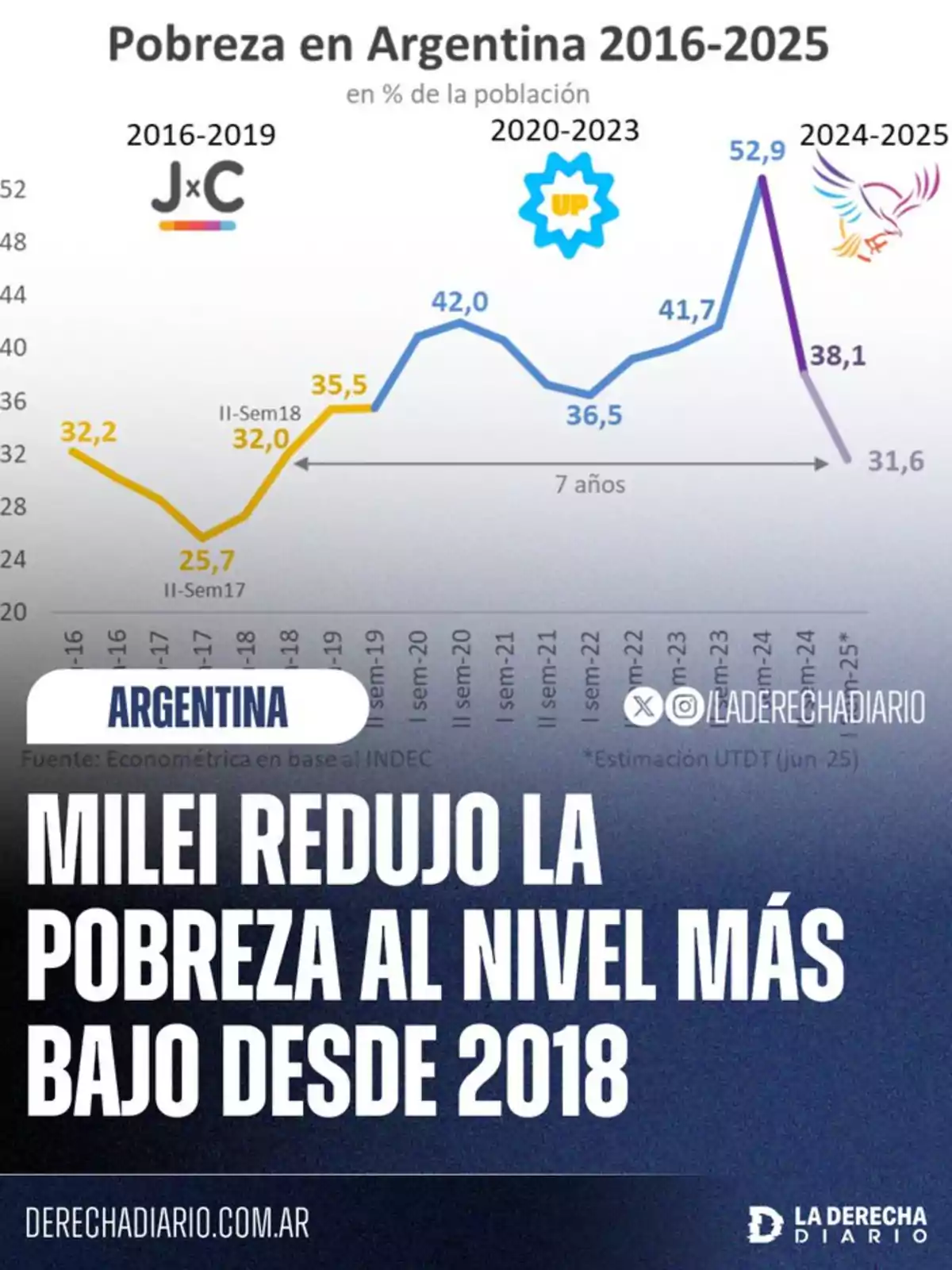
Milei's government has reduced poverty in Argentina to its lowest level since 2018.
Poverty that had arisen during the last Kirchner administration was completely reversed
The poverty rate in Argentina fell to 31.2% in the second quarter of 2025, according to a report by Universidad Torcuato Di Tella (UTDT), thus reaching its lowest level since 2018. However, behind this encouraging figure lies an even more significant fact.
In just over a year, Javier Milei's government managed to completely reverse the poverty that had been caused during the last administration of Alberto Fernández and Cristina Kirchner, as well as the final months of Mauricio Macri's term, lifting millions of Argentinians out of poverty.
The data was prepared by economist Martín González-Rozada through a nowcast based on the Permanent Household Survey (EPH) and the evolution of the total basic basket (CBT) in Greater Buenos Aires. According to his estimates, poverty in the first half of 2025 stood at 31.6%, representing a drop of more than 20 percentage points compared to the 52.9% recorded in the same period of 2024. Meanwhile, extreme poverty fell from 18.2% to 7.4%.

This phenomenon not only reflects relief in statistical terms, but also a structural trend change. For the first time in years, total family income (ITF) grew well above prices: 79.7% compared to a 41.8% increase in the total basic basket. In the most vulnerable sectors (deciles 1 to 4), income grew by 8.5% over the semester, far outpacing the 2.05% increase in the basic food basket.
The sustained decline in inflation made this process possible. In June, a rate of 1.6% was recorded, virtually identical to 1.5% in May, consolidating an accumulated inflation of 15.1% in the first half of the year and a year-on-year rate of 39.4%. These values contrast with the double-digit monthly figures recorded at the end of 2023, amid the severe economic crisis inherited from Kirchnerism.

This way, in just over a year, one of the worst social crises in history was reversed. The magnitude of the improvement not only cancels out the collapse caused during the last four years of Kirchnerism, but also marks a turning point. The country's recovery is not based on short-term populist policies, but is being driven by the restoration of macroeconomic balance, market deregulation, and fiscal surplus.
Although challenges persist and the situation remains fragile for many families, the results are clear: Argentina not only avoided the hyperinflation that seemed imminent at the end of 2023, but is beginning to leave behind years of stagnation and impoverishment.
More posts: